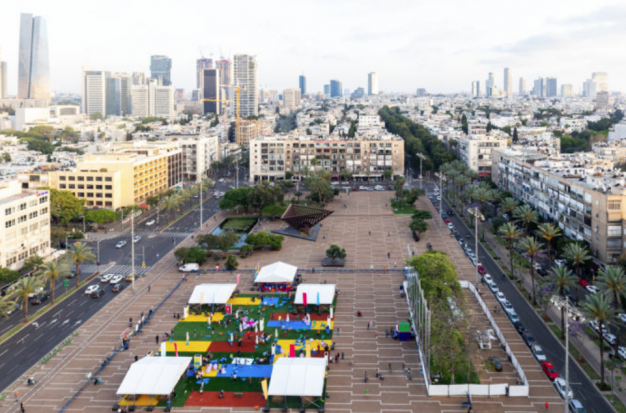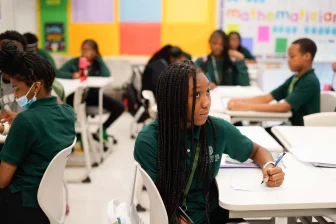
Cities and Pandemics: Towards a more just, green and healthy future for our children
Cities and Pandemics: Towards a more just, green and healthy future is a major new report which says how city planners must rethink how people – not least families and children – move into and around cities, to become more healthy and environmentally friendly, and reduce the impact of future pandemics.
Children and families are among the key groups highlighted in the report published by the UN’s Human Settlements Programme, known as UN-Habitat, which works to promote ‘socially and environmentally sustainable’ towns and cities.
It says urban areas have been at the forefront of the COVID-19 crisis, with 95 per cent of all cases recorded in cities in the first months, and these areas were faced with a rapidly changing public health crisis, along with challenges in safe public transport, increased water and sanitation needs, use of public spaces and the economic consequences of lockdowns.
‘Increased focus at the local level on planning neighbourhoods’
Despite these pressures, many local governments and community leaders responded quickly and effectively to prevent the spread of the pandemic and mitigate its effects, taking the first steps towards an accelerate recovery. Based on the documentation of more than 1,700 cities and well-founded policy analysis, the report offers both empirical evidence on the state of cities and recommendations for actions for a sustainable recovery
Urban leaders and planners must, it says, rethink how people move through and in cities, using lessons from COVID-19, according to the UN-Habitat Report. Patterns of inequality, characterised by the lack of access to basic services, poverty and overcrowded living conditions, have been key destabilising factors in increasing the scale and impact of COVID-19.
Recommendations include an increased focus at the local level on planning neighbourhoods and communities that are multi-functional and inclusive. The report explores how well planned cities combining residential and commercial with public spaces along with affordable housing can improve public health, the local economy and the environment.
‘..playing an important role in children’s development’
One example from Denmark highlights how the country followed a strategy to allow physical activity to continue by keeping public spaces open, and because these areas served as one of the ‘few safe spaces’ where people could keep a safe distance, this was a factor in alleviating stress and playing an important role in children’s development.
School closures, together with existing inequalities, have also exacerbated problems in certain areas and thus hindered children’s ability to access classes and learning materials, mostly because of a lack of access to the internet. For example, in Latin America and the Caribbean, even before the pandemic took hold, ‘almost 12 million children and youth were excluded from education, with poverty the main constraint to access’.
The report calls for cities to be at the forefront of moves towards a Social Contract between governments, the public, civil society and private sector.
“Cities are engines of dynamism and innovation, and can help us overcome development deficits. They can spearhead reforms towards a New Social Contract to tackle poverty, strengthen social protection, restore public trust and reach people who are on the margins or who face discrimination,” states the UN Secretary-General António Guterres in his foreword to the report.
‘Increased focus at the local level on planning neighbourhoods’
In one highlighted case study, Claudia Lopez Hernandez, Mayor of Bogota, explains how in the Colombian capital, their new social contract prioritises women and children. She says it is a ‘social contract that includes women, that provides them with time, with time to take care of themselves, with time to educate themselves, and with time and education skills to come back to the labour market’.
The report outlines how a new normal can emerge in cities “where health, housing and security are prioritised for the most vulnerable not only out of social necessity, but also from a profound commitment to human rights for all.”
This requires governments to focus on policies to protect land rights, improve access to water, sanitation, public transport, electricity, health and education facilities and ensure inclusive digital connectivity.
“We need to address systemic poverty and inequality in cities head on, giving greater focus to housing, basic services, sustainable mobility and connectivity,” said the UN-Habitat Executive Director, Maimunah Mohd Sharif. “This also means protecting jobs and providing financial support to cities to allow them to create financial resilience.”
Click here for the full report (pdf format).
Click here for other resources around the report, including an executive summary, specific recommendations and videos.




